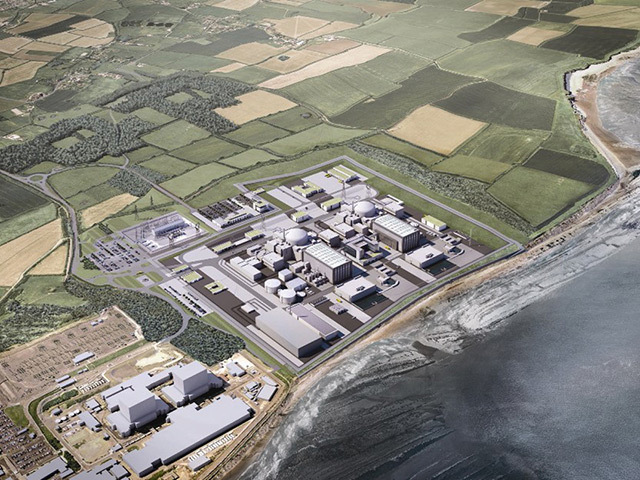
Britain’s plan to revitalize its aging nuclear energy infrastructure is likely to take a hit if Brexit jeopardizes a crucial supply of welders.
The skilled workers have been in short supply for years, a strain that will likely worsen as new nuclear projects are built. About 13% of Britain’s welders come from other countries in the European Economic Area, according to the Migration Advisory Committee, which keeps a list of occupations with a shortage of workers.
Without those additional workers, it’s likely to become more difficult and costly to build and operate multi-billion-dollar atomic plants, which are crucial to the U.K.’s target to produce net-zero carbon emissions by 2050. The stress is already apparent at Electricite de France SA’s 19.6 billion-pound ($24 billion) Hinkley Point C project, the only nuclear plant now under construction in Britain.
“Hinkley requires a large number of welders,” said Peter Haslam, who retired on Friday as head of policy at the Nuclear Industry Association. “They come from Europe. We need these people to have easy access to the U.K.”
Nuclear power makes up about a fifth of Britain’s electricity, and most of those plants are aging and will close in the next decade. Even with Prime Minister Boris Johnson’s call for a “nuclear renaissance,” replacing them won’t be easy. EDF’s Hinkley Point is still under construction and won’t produce any electricity for at least six years.
Construction of the new units at Hinkley Point remains on schedule. While Parliament continues to debate the outcome of Brexit, EDF says it is working closely with the U.K. government on the implications to its workforce.
An undertaking such as Hinkley Point requires at least 500 welders, of which about 75 need to be the highest-trained kind, said Guy Hazlehurst, workforce development director at EDF.
The issue goes beyond Brexit. Many of the workers who had these skills have retired, and younger workers rarely choose to pursue the career.
“The U.K. is dealing with a much wider skills shortage, in all sorts of areas,” said Andrew Cockcroft, a spokesman at EDF. “Even if Brexit wasn’t occurring, there would still be a welding shortage. It does exacerbate the problem.”
To deal with the issue, EDF is spending millions to train a new crop of workers. The company is helping to organize funding for a welding education facility on top of 15 million pounds it has already spent on training in the area near Hinkley Point. For someone who is new to welding, the training can take about three years to reach the high standard necessary to work on a challenging nuclear project.
That could be a tight time line. In the case of a no-deal exit later this year, EU citizens could continue to work on a three-year permit known as the European Temporary Leave to Remain. But the success of EDF’s education effort could be vital to keeping projects on time and on budget in the long term.
“Regardless of the outcome of Brexit, if we are short of a certain skill-set for a certain amount of time, then the work still needs to be done,” said Andy Brown, director of operations at the Engineering Construction Industry Training Board, which helps train industrial workers. “There will be barriers and that will impact on schedule and if it impacts schedule, it will impact on costs.”
Recommended for you
